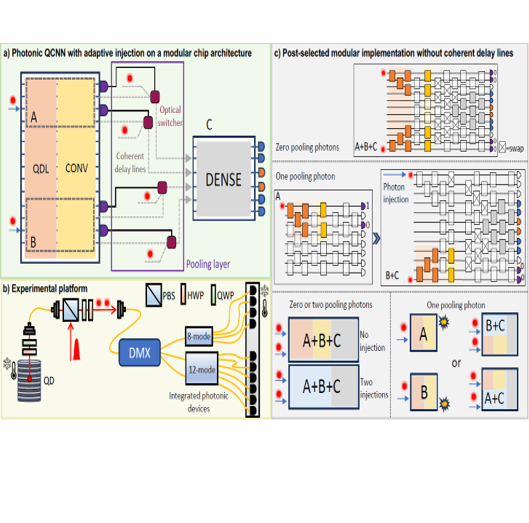Recent photonic quantum machine learning proposals combined linear optics with adaptivity to enhance expressivity and improve algorithm performance and scalability. The particle-number-preserving property of linear optical platforms was recently employed to design a quantum convolutional neural network architecture with advantages in terms of resource complexity and the number of parameters needed. Here, we design and experimentally implement a photonic quantum convolutional neural network (PQCNN) based on linear optics equipped with adaptive state injection, a tool that increases the linear optical circuits controllability. We validate the PQCNN for a binary image classification on a photonic platform utilizing a semiconductor quantum dot-based single-photon source and programmable integrated photonic interferometers comprising 8 and 12 modes. To investigate the scalability of the PQCNN design, we performed numerical simulations on datasets of different sizes. These findings demonstrate potential utilities of a simple adaptive technique for a nonlinear boson sampling task, compatible with near-term quantum devices.

